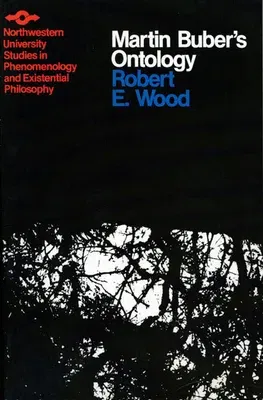Robert Wood
(Author)Martin Buber's Ontology: An Analysis of I and ThouPaperback, 1 December 1969

Temporarily out of stock
Free Delivery
Cash on Delivery
15 Days
Free Returns
Secure Checkout

Part of Series
Studies in Phenomenology and Existential Philosophy
Part of Series
Studies in Phenomenology and Existential Philosophy (Paperba
Print Length
139 pages
Language
English
Publisher
Northwestern University Press
Date Published
1 Dec 1969
ISBN-10
0810106507
ISBN-13
9780810106505
Description
Product Details
Author:
Book Format:
Paperback
Country of Origin:
US
Date Published:
1 December 1969
Dimensions:
22.86 x
15.49 x
1.52 cm
ISBN-10:
0810106507
ISBN-13:
9780810106505
Language:
English
Pages:
139
Publisher:
Series:
Weight:
244.94 gm